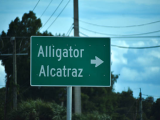Mar 29, 2011
Sweden finds narcolepsy link to H1N1 vaccine
Swedish researcher exploring a possible link between 2009 H1N1 vaccination and narcolepsy in children found that those who received the Pandemrix vaccine had a fourfold increased risk of the condition, compared with those who weren't vaccinated, according to a press release today from the country's Medical Products Agency (MPA). The group conducted the study with two healthcare regions, two county councils, and the Karolinska Institute. The study includes all cases of narcolepsy between Oct 1, 2009, and Dec 31, 2010, in the databases of the four regions, which represent about 57% of Sweden's population. The researchers found that the absolute risk was 3 in 100,000 children and adolescents, and they saw no increased risk in adults. A similar study by Finnish health officials found a ninefold greater risk of narcolepsy in vaccinated children. The MPA said it will continue its investigation into reasons for the increased narcolepsy risk and that a countrywide inventory of all narcolepsy cases in 2009 and 2010 is under way. The European Medicines Agency has also launched a detailed study exploring the link, with results expected in July.
Mar 29 MPA press release
Venezuela's H1N1 cases double
The number of 2009 H1N1 influenza cases in Venezuela over the past week has doubled, the country's health minister said yesterday at a press conference, the Associated Press (AP) reported. Health Minister Eugenia Sader said 415 cases have been diagnosed so far from 19 of the country's 24 states, with tests under way on 300 more sick patients. In the middle of March reports surfaces of a Venezuelan spike in 2009 H1N1 infections, which were mainly centered in the western state of Merida. Officials said yesterday that so far two deaths have been reported. The Southern Hemisphere's flu season typically runs from May through October.
Mar 28 AP story
Flu vaccine using 'consensus antigen' looks promising in mice
A team of US researchers reports the creation and testing in mice of a vaccine using a "centralized consensus antigen" designed to protect against a wide range of H1 influenza strains. The researchers, from the Mayo Clinic in Rochester, Minn., and St. Jude Children's Research Hospital in Memphis, used 20 hemagglutinin sequences representing the main branches of the H1 phylogenetic tree to create a centralized synthetic gene called HA1-con. They combined this gene with an adenovirus to create a vaccine. To test it, they injected mice with this vaccine or vaccines generated from two wild-type H1 flu viruses and afterward exposed the mice to normally lethal doses of various H1 flu viruses. They report that the consensus vaccine provided better protection than the vaccines based on single strains. Writing in PLoS One, the authors say their findings show that HA1-con in adenovirus "has potential as a rapid and universal vaccine for H1N1 influenza viruses."
Mar 28 PLoS One report
Australian physicians group opposes flu vaccination at pharmacies
The Australian Medical Association (AMA) has criticized a pharmacy chain's plans to offer influenza vaccination to customers, the Australian Broadcasting Corp.(ABC) reported today. The Priceline chain announced plans to offer the vaccine for $30 at all its stores starting in April. David Mountain, president of the AMA's Western Australia group, said, "I think it's just another grab for people's dollars without actually putting in the right safeguards and proper processes for giving flu vaccine," according to the report. Priceline officials said customers won't need a prescription for the shot.
Mar 29 ABC report


















